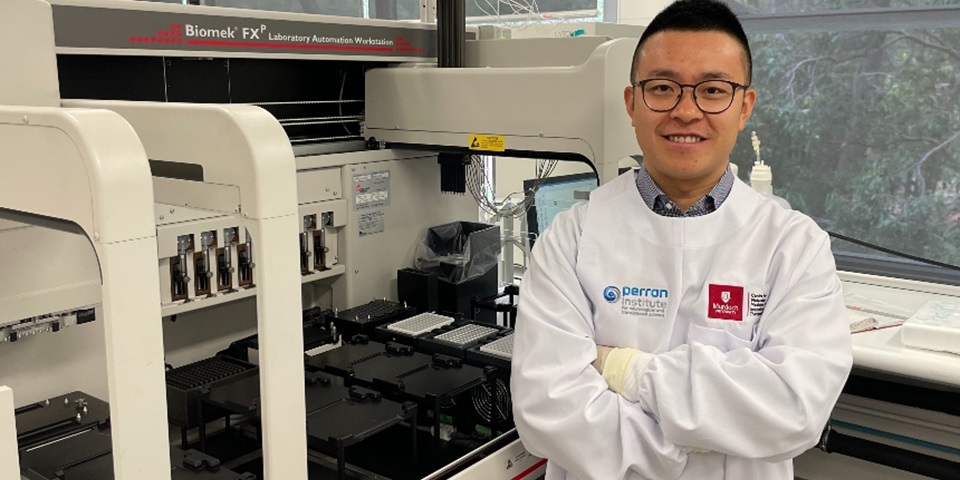News
MND research targets a new gene in hopes of a breakthrough

A new approach to enhance nerve fibre growth and promote nerve cell survival aims to buy precious time for people with the disease.
Motor neurone disease (MND) affects the nerve cells known as motor neurones. These nerve cells are found in the brain and spinal cord and help tell your muscles what to do.
MND remains incurable despite significant research efforts, public attention and fundraising. Current drugs benefit only a small proportion of patients and have limited effects on survival.
Now, Murdoch University scientists are testing a new strategy to repair and protect dying neurons and wasting muscles. They have developed a novel approach to dial down the expression of a suspected gene associated with disease progression.
“The long-term aim of this research is to slow disease progression and improve function and survival outcomes in MND patients,” Dr Oliver (Dunhui) Li of the Centre for Molecular Medicine and Innovative Therapeutics (CMMIT), a joint research centre between Murdoch University and the Perron Institute, said.
“Nerve fibre degeneration is an integral feature of MND, a neurodegenerative disease that affects nerve cells in the brain and spinal cord that control voluntary muscle movement.
“This degeneration results in the loss of communication and connectivity between neurons and muscles, leading to progressive muscle weakness and atrophy, so promoting nerve fibre regeneration is seen as a viable therapeutic intervention.
“Our project focuses on a gene that appears to be associated with MND disease risk and disease progression, one that plays a role in restricting that nerve fibre regeneration.”
Steve Robinson, who was diagnosed with MND less than two years ago, describes living with the disease as the ‘great deceleration’ – walking, talking, eating and breathing progressively deteriorate until they are critically compromised, independence is lost and support needs grow.
“It steals your time, and the time of those around you, and your future. Everything becomes frustratingly time consuming,” Mr Robinson explained.
“Small tasks become big. They rapidly become possible only with an extensive allied health team and carer support.”
“For the two people diagnosed with MND every day in Australia, facing a journey like mine, research like this offers hope.
“If this new approach can lead to slowing the rate of progression of the disease, it would buy precious time, both for people with the disease and for further scientific research into treatment of MND.”
Professor Anthony Akkari, Director of CMMIT and collaborator on this latest research, said that advances in technology over the past twenty years have radically transformed the way scientists are able to test new therapies like this one.
“Recently, technology has evolved to allow us to take a skin sample from a patient with MND, reprogram that skin sample into a stem cell and then tell that stem cell to become a motor neuron.”
“So, for the first time we’re able to actually grow motor neurons from patients with MND and test them in the laboratory under different circumstances – including here with Dr Li’s new therapy – to see if that might improve the health of the motor neuron.”
“With the generous funding from FightMND and ongoing support from the Giumelli Family Foundation we can dive into a new biological aspect of the disease which could eventually bring promising clinical benefits to patients,” Dr Li said.
“While it’s a long journey, we want to advance drugs to the clinic and help patients like Steve as fast as we can.”
Murdoch University featured on Channel 10 - MND from Murdoch University on Vimeo.
Learn more about the lifechanging research happening at the Centre for Molecular Medicine and Innovative Therapeutics.